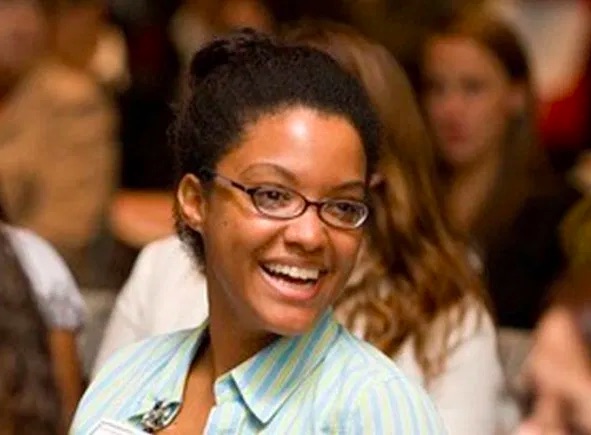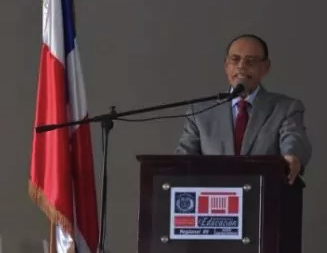DISARMAMENT & SECURITY .
An article by Eric Zuesse from the Transcend Media Service
With every passing day, it becomes clearer that the military coup in Bolivia on November 10th was masterminded in Washington DC. This reality will create yet a new difficulty in relations between the U.S. regime and Mexico to its direct south, because the Mexican Government, under progressive President Lopez Obrador, took the courageous and very meaningful step of providing refuge to the U.S.-couped Bolivian President Evo Morales and therefore posed overtly a resistance to the U.S. dictatorship.

President Evo Morales
Unlike the U.S. itself, which has abandoned the substance of democracy while adhering to its fascist Supreme Court’s interpretations (distortions) of the original intent of the democratic America’s Founding Fathers in their U.S. Constitution, Bolivia’s imposed regime isn’t even nominally legitimate in any democratic sense, because it has abandoned that country’s Constitution, ever since it grabbed power there.
One of the first indications that this was another U.S. coup was that on November 10th, the New York Times, which along with the Washington Post is one of the regime’s two main mouthpieces, refused to call it a “coup” at all, though it obviously was. Headlining on November 10th with the anodyne “Bolivian Leader Evo Morales Steps Down”, they lied and alleged that “Mr. Morales was once widely popular” — as if there were any objective measures, such as polls, which indicated that he no longer was. Their concept of ‘democracy’ was like that of fascists everywhere: violent mob actions against a democratically elected Government. “Angry mobs attacked election buildings around the country, setting some on fire.” Far-right mobs are ‘democracy to ‘journalists’ such as at the New York Times.
The next day, November 11th, that fascist ‘news’-paper headlined an editorial “Evo Morales Is Gone. Bolivia’s Problems Aren’t.” Here is how they expressed their contempt for democracy: “When a leader resorts to brazenly abusing the power and institutions put in his care by the electorate, as President Evo Morales did in Bolivia, it is he who sheds his legitimacy, and forcing him out often becomes the only remaining option. That is what the Bolivians have done.” ‘Bolivians’ — meaning there that extreme-rightist minority of Bolivia’s electorate. The NYT even had the gall to say contemptuously: “Predictably, Mr. Morales’s left-wing allies across Latin America, including President Nicolás Maduro of Venezuela, President-elect Alberto Fernández of Argentina and President Miguel Díaz-Canel of Cuba, joined by the British Labour leader Jeremy Corbyn, cried ‘coup’.”
Britain’s BBC, on November 11th, was considerably more circumspect in their anti-democratic propaganda: for example, in this video, at 13:00, the BBC asks
“Why are so many of the people out there on the streets now then do you think [demonstrating against Morales]?” and the respondent didn’t say that this is the way practically every CIA coup is done. So, the desired implication was left with gullible viewers, that this was an expression of a democracy instead of the expression of a fascist mob.
It was left to governments which are resisting U.S. rule to express more honestly, as the Turkish Government’s more honest propaganda-organ, the newspaper Yeni Safak, did finally on November 17th, “Bolivia’s Morales was overthrown by a Western coup just like Iran’s Mosaddeg”. Their columnist Abdullah Muradoğlu wrote:
There are indications that the U.S. was involved in the ousting of Bolivia’s first indigenous president, Evo Morales, in a military coup. Secret talks between American senators and Morales’ opponents were brought up before the elections on Oct. 20. The talks, which were leaked to the public, discussed action plans to destabilize Bolivia if Morales won the elections. It was stated that the Evangelical Church would support the coup attempt. The fact that Brazilian President Jair Bolsonaro, known as “Tropical Trump”, U.S. Vice President Mike Pence and U.S. Secretary of State Mike Pompeo are passionate Evangelicals, points to the ideological link to the Evangelical architects of the Bolivian coup. …
Bolivia has abundant resources of tin, copper, silver, gold, tungsten, petroleum and uranium, as well as large quantities of lithium. Lithium is a strategic mine for space technology. Morales became the target of a pro-U.S. military coup, and policies aimed at allocating the country’s resources to the poor rather than a small group played an important role in his demise. …
But it wasn’t only foreign news-media but also a very few honest alternative-news media which were reporting the realities. For example, on November 11th, The Gray Zone headlined “Bolivia coup led by Christian fascist paramilitary leader and millionaire – with foreign support”. The next day, on November 12th, Moon of Alabama’s anonymous blogger bannered “Lessons To Learn From The Coup In Bolivia” and he summarized the popular democratically elected and re-elected overthrown leader Evo Morales’s enormously successful record of leadership there, such as:
During his twelve years in office Evo Morales achieved quite a lot of good things:
Illiteracy rates: 2006 13.0%, 2018 2.4%
Unemployment rates 2006 9.2%, 2018 4.1%
Moderate poverty rates 2006 60.6%, 2018 34.6%
Extreme poverty rates 2006 38.2%, 2018 15.2%
It’s no wonder, then, that Morales is so popular in Bolivia.
Then, further about the fascist character of the U.S.-imposed regime, Mint Press News headlined on November 18th, “Media Silent as Bolivia’s New Right-Wing Gov’t Massacres Indigenous Protesters”.
On November 19th, Peoples Dispatch bannered “Hatred of the Indian. By Álvaro García Linera”, and presented a statement by Linera, who was Morales’s Bolivian Vice President. He opened:
Almost as a nighttime fog, hatred rapidly traverses the neighborhoods of the traditional urban middle-class of Bolivia. Their eyes fill with anger. They do not yell, they spit. They do not raise demands, they impose. Their chants are not of hope of brotherhood. They are of disdain and discrimination against the Indians. They hop on their motorcycles, get into their trucks, gather in their fraternities of private universities, and they go out to hunt the rebellious Indians that dared to take power from them.
In the case of Santa Cruz, they organize motorized hordes with sticks in hand to punish the Indians, those that they call ‘collas’, who live in peripheral neighborhoods and in the markets. They chant “the collas must be killed,” and if on the way, they come across a woman wearing a pollera [traditional skirt worn by Indigenous and mestizo women] they hit her, threaten her and demand that she leave their territory. In Cochabamba, they organize convoys to impose their racial supremacy in the southern zone, where the underprivileged classes live, and charge – as if it were a were a cavalry contingent – at thousands of defenseless peasant women that march asking for peace. They carry baseball bats, chains, gas grenades. Some carry firearms. …
On November 26th, the Libya 360 blog headlined “Bolivia: they are killing us, comrades!” and reported:
We are receiving audios all the time, from different parts of Bolivia: Cochabamba, El Alto, Senkata, La Paz… They bring desperate cries from women, from communities that resist with dignity, under the murderous bullets of the military, police, and fascist groups armed by the oligarchies with the support of Trump, Macri, and Bolsonaro. They also bring voices that denounce, voices that analyze, voices that organize, voices that are in resistance. There are weeping voices that are remade in slogans. The united peoples will never be defeated!
The racist, fascist, patriarchal, colonial, capitalist coup d’etat seeks to put an end to all these voices, silence them, erase them, make them inaudible. The communicational fence seeks to crush and isolate the words of the people. The conservative, capitalist restoration, goes for lithium, goes for the jungle, goes for bad examples.
The voices continue to arrive. New spaces of communication are generated. The social and family networks, the community radio stations, the home videos made from cell phones are functioning by the thousands. It is heartbreaking to hear bullets. To see their journey through the flesh, invading the bodies that rise from all humiliations. It generates anger, impotence, indignation, rage. …
(article continued in right column)
Why was Morales ousted from Bolivia by a coup d’etat?
(article continued from left column)
On the same day, that same blog bannered “The People Will Not Allow the Coup in Bolivia, says Venezuelan Ambassador”. This opened:
One of the first ‘promises’ made by the self-proclaimed, de-facto government of opposition senator Jeanine Áñez was to “hunt down” ex-minister Juan Ramón Quintana, Raúl García Linera – brother of vice-president Álvaro García Linera -, as well as the Cuban and Venezuelan people that live in Bolivia.
The threat was publicly declared by the interior minister Arturo Murillo, designated by Áñez.
Later on, the communications minister of the de facto government, Roxana Lizárraga, accused Cuban and Venezuelan diplomats of being responsible for the violence unleashed in the country.
The statements came after an attack on the Venezuelan diplomatic office in La Paz on November 11. Armed paramilitaries surrounded the embassy with explosives and threatened to invade the building.
However, the aggression did not begin with the coup. According to Crisbeylee González, who served as the Venezuelan ambassador in Bolivia for more than 10 years, since 2008, the embassy has suffered threats from the organizations in opposition to Evo Morales and Álvaro García Linera.
During the days of tension, Crisbeylee, who is also a personal friend of Morales, decided to protect her team and she returned to her country.
On November 17, the Venezuelan diplomatic staff, made up of 13 functionaries and their family members, flew with the Venezuelan state company Conviasa from La Paz to Caracas.
Upon returning to her country, the ambassador spoke to Brasil de Fato and denounced the terror she suffered in the last couple of days.
Brasil de Fato:
How did you all take the news that you would have to leave the country? Was there any hostility before the coup?
Crisbeylee González:
For a while now, the opposition has talked about a “Chavista bunker” referring to the Venezuelan embassy, where we would supposedly be “ideologically orienting” the Bolivian people’s movements and youth. They even talked about us supposedly exerting pressure on Evo so that he would not abandon the socialist, Bolivarian proposal.
There were always certain times when the xenophobia increased, especially during elections. Every time that there were elections or a coup attempt, the principal target is always of course president Evo Morales but right after that, it’s the Venezuelan embassy. The diplomatic mission has always been an element that must be combated.
Since 2012 when there was a coup attempt by the police, they began to say that our embassy carried out military training with the Bolivians. A very similar discourse to what was created in Chile against the Cubans during the rule of Salvador Allende.
And with this, they were able to create a strong expression of xenophobia within the Bolivian middle classes against Venezuelans. The media also helped to create this adverse discourse against Venezuelans.
In these past couple of days [since the coup], one of the first things that they did was to say that the Venezuelans had to leave and that they were going to attack the Venezuelans. Before the elections on October 20, they already talked about attacking the embassy. …
The next day, on November 27th, they headlined “The U.S. Launches Itself in the Most Violent Way Imaginable to Definitively Seize Bolivia”. They interviewed Argentine sociologist Atilio Boron, one of the most internationally renowned political analysts today, so that in just three questions he can give us his vision of the crisis Bolivia is going through.
How would you characterize the coup d’état in Bolivia?
Without a doubt, the coup d’état in Bolivia is part of the tradition of the old military coups sponsored by the United States since the end of World War II. However, this practice dates back even further, as the history books show us. That means that the soft coup that was applied against Manuel Zelaya in Honduras, Lugo in Paraguay and Dilma Rousseff in Brazil, has been abandoned and the old formulas have returned. In Bolivia, the old formulas were applied, because in reality there was no possible propagandistic basis for the coup. There was no fraud in Bolivia and therefore the OAS avoided using that expression, instead making euphemistic recommendations.
Furthermore, recent studies from the United States convincingly prove that such fraud did not exist. The University of Michigan study (which is the most important center for electoral studies) confirms this. However, the coup plan was not going to stop in the face of these details. They wanted to get Evo out and take revenge. It was a very clear lesson against those Indians who, as they did in 1780, revolted against the Spanish viceroyalty. Somehow what is happening now is a replay of Túpac Katari’s deed. The scenarios have changed and imperialism is different, but the essence is the same. And now, as yesterday, it is being repressed with unprecedented ferocity. …
On November 28th, Peoples Dispatch and Libya 360 simultaneously headlined “Bolivia: What Comes After the Coup?” and opened:
It has been over two weeks since the coup d’état which forced the resignation and exile of President Evo Morales and Vice-president Álvaro García Linera. Since then, thousands of working-class and Indigenous Bolivians have been resisting on the streets the coup and the illegitimate government of Jeanine Áñez. They have been met with extreme violence from the Armed Forces and the National Police, over 30 have been killed, hundreds injured and hundreds have been arrested.
On Monday night, a new agreement was announced reached between the de facto government of Áñez and the legislators from the Movement Towards Socialism (MAS) to hold elections in the country in the next 3-4 months.
Peoples Dispatch spoke to Marco Teruggi, an Argentine sociologist and journalist who spent several weeks in Bolivia before and after elections were held in order to understand the agreement reached on elections and the state of resistance in the country.
Peoples Dispatch:
Starting with the most recent, what do you think about the agreement that MAS made with the de facto government of Jeanine Áñez? Did they have another option? Was there enough force on the streets and in the Assembly to achieve anything else?
Marco Teruggi:
The first thing to keep in mind is that in the design of the coup d’état, from the beginning, the possibility of an electoral solution was always contemplated in order to gain legitimacy.
If you had to arrange it in steps, there is the first step which is the overthrow, a second step which is the creation of a de facto government, and all of this accompanied by persecution, repression and massacres. The third moment is the call for elections and the fourth moment is when the elections themselves happen.
This was always proposed in the basic design, it was never about an old-style coup d’état where a de-facto government is installed for an undetermined amount of time, but precisely part of its presentation was to show itself as a democratic process, recognized internationally, under the condition that later they would go to elections.
It was always expected, the question was in what moment, with what conditions, both for the coup supporters and for those who are confronting it. In this sense, this issue was being discussed in the Assembly, where MAS has a majority, and as they had been announcing, they gave the OK for an agreement, in law, to call for elections, wherein the results of the elections of October 20 are also annulled.
I think that just as it was clear that the coup strategy counted with an electoral resolution to legitimize itself, it also was clear early on that the strategy of the MAS legislators was to hold these elections in the most favorable conditions possible. Basically that MAS could present itself in the elections, which it achieved, and with guarantees for Evo, not to participate, but to prevent political-juridical persecution. And also the retreat of the soldiers, for them to return to their barracks, and that the decree which exempts them from penal responsibility in operations of “re-establishing order” is withdrawn.
As such, it is not surprising that MAS has said yes to the elections because it was not going to be possible to remove Áñez through street pressure, even though the actions on the streets conditioned the initial strategy of the coup. It is very important to keep this in mind because otherwise, one could think that MAS proposed a change of tactics, of strategy. But no, it was always the electoral solution, and either way, the streets were an important component to accelerate this process on both ends. …
So, in short: rigged ‘elections’ will be held, in which Evo Morales is to be excluded, and in which there will be no repercussions against the U.S.-stooge-regime participants if their side fails to win those ‘elections’. The Bolivian people won’t have any legal right to hang the coupsters. The U.S. regime will see to that.












